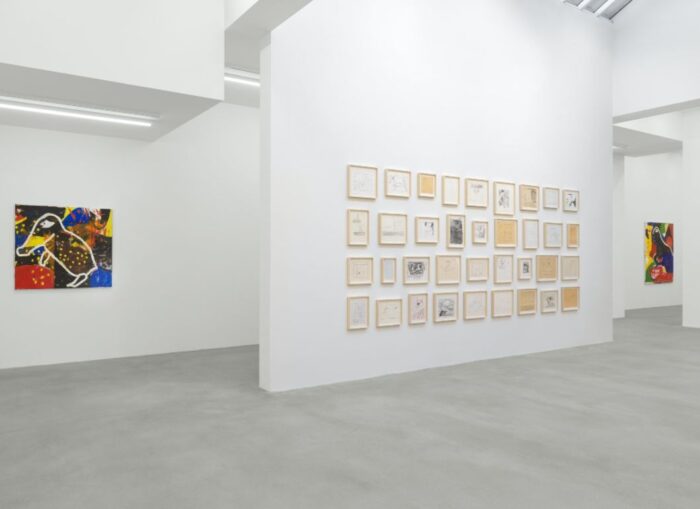
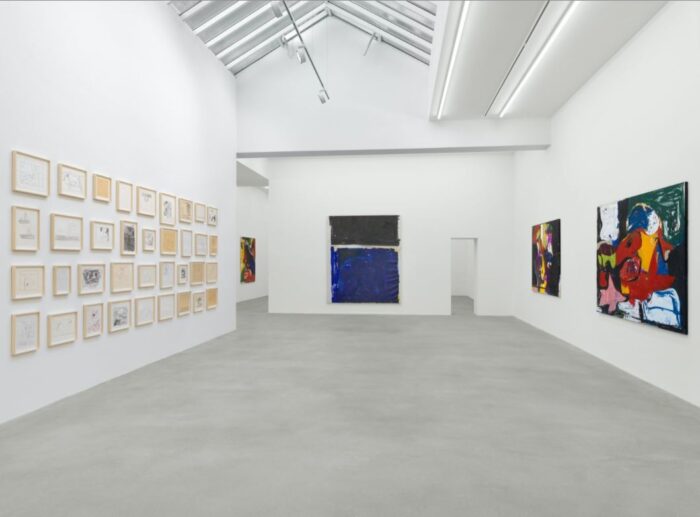
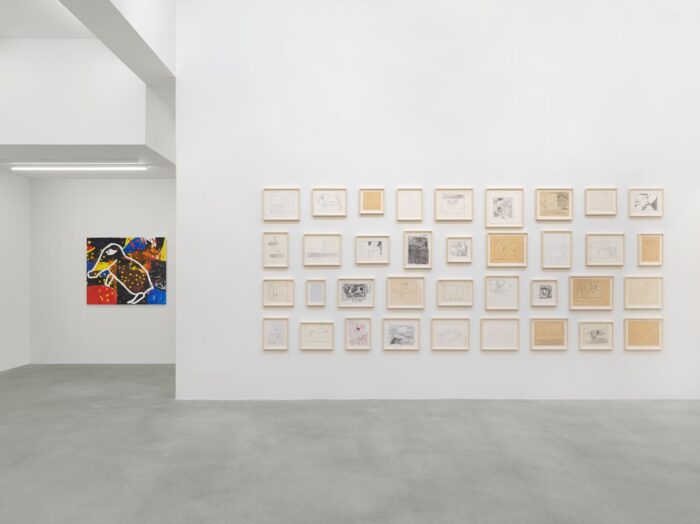
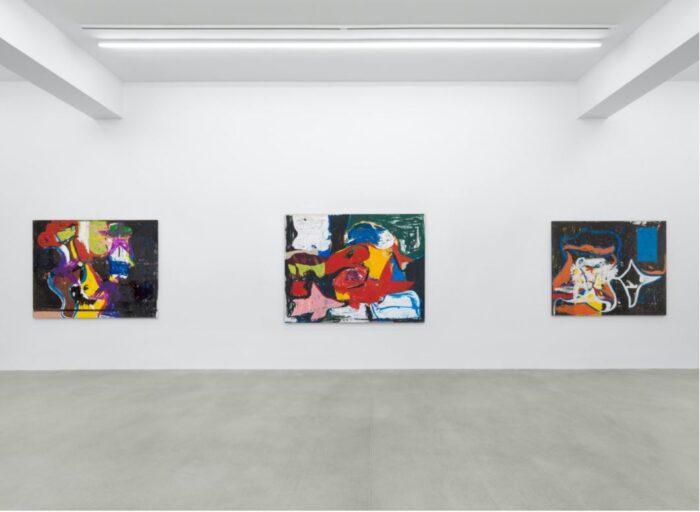
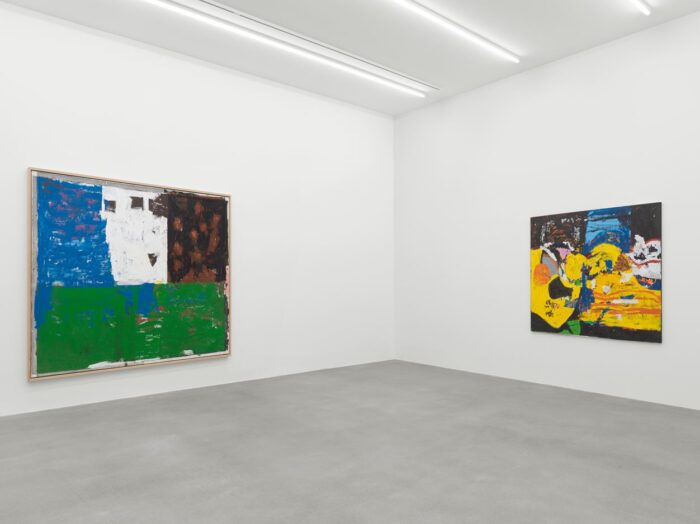
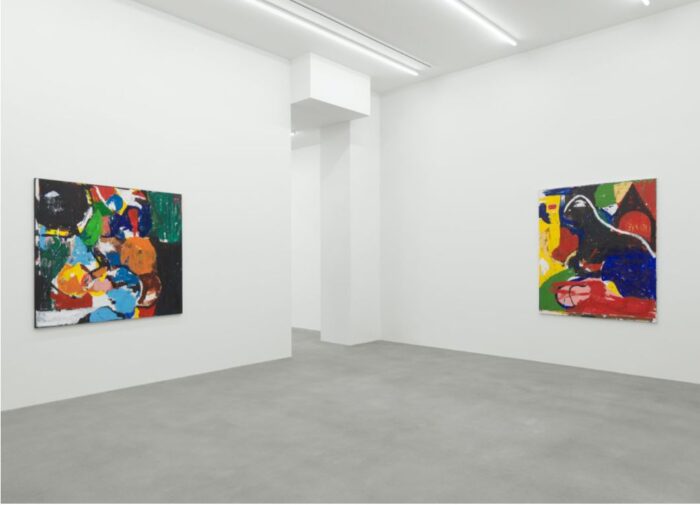
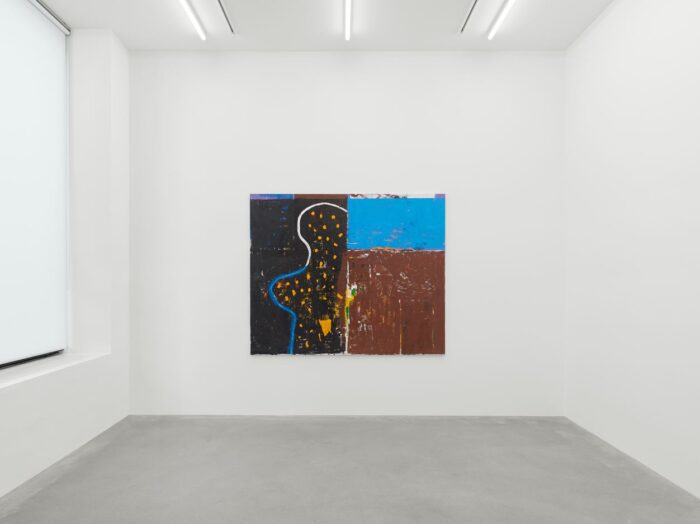
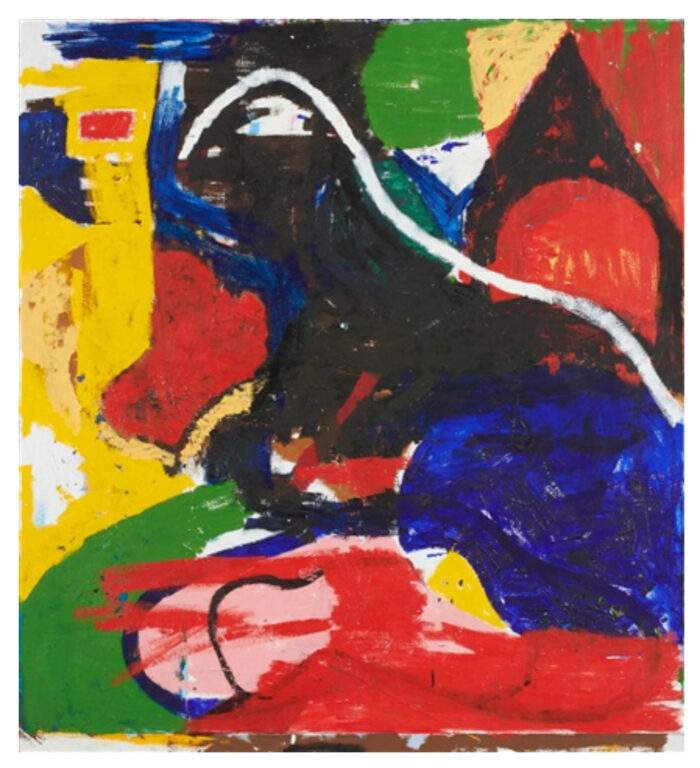
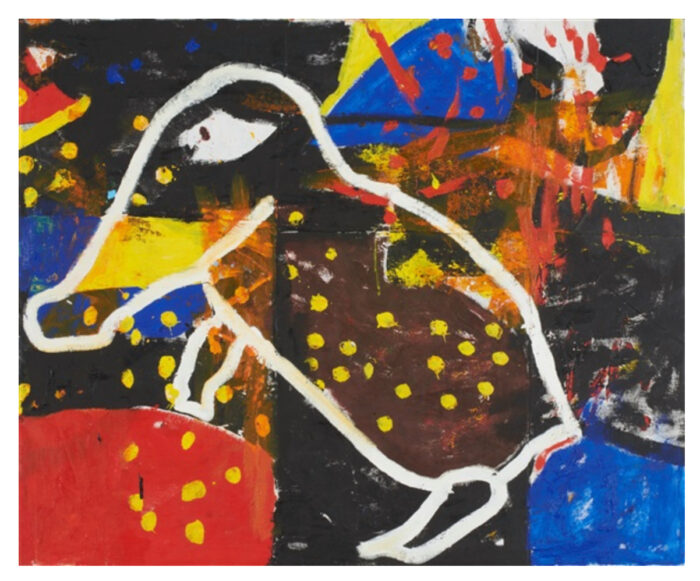
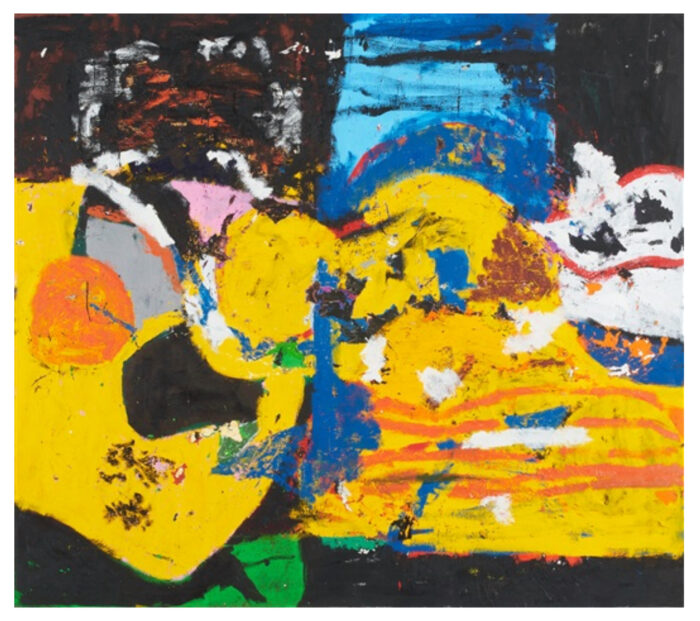
Joe Bradley: Sub Ek at Galerie Eva Presenhuber, Waldmannstrasse, Zürich
Sep 12, 2020 – Oct 31, 2020
All images courtesy of the Gallery and the artist
Galerie Eva Presenhuber is delighted to present Sub Ek, the gallery’s fourth solo exhibition with the American artist Joe Bradley.
It would be easy to claim that Joe Bradley paints about painting. Certainly, his work has often intimated this: it has suggested allusions to Abstract Expressionism, to Philip Guston, or to Minimal Art, all with a very contemporarily distant, not entirely tangible twist that nonchalantly oscillates between irony and melancholy. Recently, however, Bradley has developed a new visual language that is entirely his own.
The exhibition Sub Ek brings together 10 paintings and 46 drawings that wrap colorful, dream-like beings, objects, and shapes in a dense, gloomy atmosphere. Even though they have an undercurrent of almost childlike, naive cheerfulness—as Bradley intended—there is also something psychedelic, almost threatening, in how loose, how vivid their floating lines and compositions are. Like night has fallen over them. The light in Bradley’s new paintings is as cold as the moon’s. Blues and blacks glom onto the colors, dragging them into a shadow realm. Yet the intertwined forms keep twisting and breaking out of the gloom. A fight rages on the canvas, a fight that is simultaneously a game: light and dark are two sides of the same coin alternately pushing themselves to the fore. Sometimes our gaze goes straight to the black, sometimes it is drawn instead to the strange figures lurking among the colorful shapes. “Painting can broadcast contradictory content,” Bradley says. “Simultaneously, a painting can be melancholic and celebratory, slow and rigorous, loose and sloppy. In a good painting, those dichotomies generate a kind of heat.”
When painting, Bradley does not illustrate what is happening around him, nor what he sees, reads, and feels. Still, external influences—his perspective on art, on a particular text, on what is happening in society—do filter through his nervous system and are reflected in his work. The fact that his earlier works were full of stylistic changes gave him a certain freedom and flexibility, but perhaps this also meant they revealed less about him. Now he works more slowly, allows his painting more time to develop, gives his own instincts more room. There are practically no white canvases any longer; his series of images interlock, each image building on the next. Bradley’s work is not based on rational decisions. “It is more an intuitive response to the act of painting,” as he puts it. Combined with the playful instinct that has always guided him, this intuition forms the basis of his work.
In his new works, what is particularly striking are the animal beings that Bradley introduces here and there, based on his drawings: animalistic archetypes (especially cows) are more present than ever, paired with human faces and simple, everyday objects. There’s something poppy, pure, cartoony about them—underground comics have shaped Bradley since his teenage years, forming the soundtrack to his work, if you will. He has used figures before, even in more abstract compositions, but now they are more clearly visible. One of them—a kind of spiritual creature—is present throughout, “almost like a mascot,” as Bradley puts it. It is the first time that the artist has sparked a dialogue between his canvases and his works on paper—as if they were nodding to each other. “That’s been a stubborn desire over the last five years: to bring more drawing into the painting, and more of what’s happening into my paintings. I get the feeling that uniting those two things will make for a more holistic practice.”
Wholeness, non-duality, spirituality—these ideas are also reflected in the title of the show: “Sub Ek” means the oneness of all things and beings, an understanding that can be found in Buddhism and Hinduism, and in mysticism as well. Though Bradley has steeped himself in Eastern philosophy over the last few months, he declines to provide specific references; it is the idea and the sound of the words “Sub Ek” that are right for him here. And his pictures live and breathe their spirit.
Joe Bradley was born 1975 in Kittery, ME, US, and lives and works in New York, NY, US. Bradley has been the subject of solo exhibitions at museums including Rose Art Museum, Brandeis University, Waltham, MA, US (2017); Albright Knox Art Gallery, Buffalo, NY, US (2017); Bozar / Center of Fine Arts, Brussels, BE (2017); and Le Consortium, Dijon, FR (2014). Major institutional group exhibitions include Joe Bradley, Oscar Tuazon, Michael Williams, The Brant Foundation Art Study Center, Greenwich, CT, US (2018); New York Painting, Kunstmuseum Bonn, Bonn, DE (2015); The Forever Now: Contemporary Painting in an Atemporal World, curated by Laura Hoptman, Museum of Modern Art, New York, NY, US (2014); and EXPO 1: NEW YORK, curated by Klaus Biesenbach, MoMA PS1, Long Island, NY, US (2013). Bradley’s work was also included in Whitney Biennial 2008, curated by Henriette Huldisch and Shamim M. Momin, and overseen by Donna De Salvo, Whitney Museum of American Art, New York, NY, US (2008).
